Medical Interpreter Vs Medical Translator - All You Need to Know!
By: Ricky vela Posted on Wed, 04-10-2023

In a healthcare setting, communication is of utmost importance. It plays a crucial role in determining a smooth dialogue between patients and healthcare workers. Owing to this crucial need to make communication between stakeholders easy, medical companies and clinics hire medical interpreters and medical translators. They make communication between medical stakeholders speaking different languages easy and hassle-free.
Although many people consider medical interpreters and translators to be the same, some differences distinguish the two from each other. Any person using the services of a medical interpreter or translator must be aware of the differences between the two.
Before we explore the differences between a medical interpreter and a medical translator, it is important to define an interpreter and translator.
Who is a Translator?

A translator is a person who converts written text from one language to another. If you have a document and you want to convert the contents of that document into another language, you will need the services of a translator. The translator will carefully analyze your document before converting it into your chosen language. He will then send the translated document to you in exchange for a translator fee.
Who is an Interpreter?
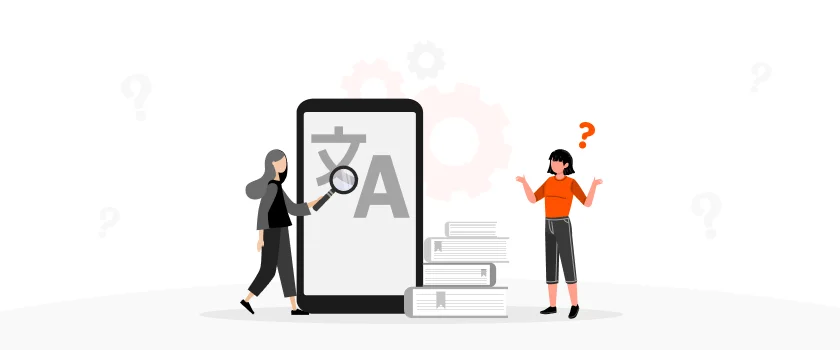
An interpreter is a person who converts oral speech from one language to another. If two parties that do not speak the same language need to converse with each other, they can hire an interpreter. He will bridge the communication gap. One party speaks to the interpreter in his native language, communicating what they want the other party to know. The interpreter listens closely and communicates the message to the other party in its native language. Thus, a dialogue takes place between parties with the help of an interpreter.
Why Medical Translation and Interpretation are important?

These are the reasons why the services of skilled medical translators and interpreters are so important:
1. The Medical Field is a Sensitive One
Certified medical translation and interpretation both comprise one of the sensitive fields of translation–the healthcare field. Contrary to other fields and subjects, there is no chance or tolerance for mistakes and errors in healthcare. The reason for this is that an incorrect translation may harm the health or well-being of the parties and could lead to interventions such as surgery or the prescription of powerful medications associated with the risk of serious complications.
Due to the high sensitivity of the medical field, the translation and interpretation should be carried out by highly proficient people who can exercise a high degree of concern to ensure the quality of their work.
2. Global Migration has Driven Demand
According to statistics, there is quite high demand for language interpretation in medical services. The reason is that there are approximately 45 million people in the US who do not speak English as their primary language while an additional 21 million people report that they do not speak English fluently.
The field of medical translation and interpretation has become more critical with the rise in global and worldwide migration. When a large number of people move from one country to another, medical services are one of the top services they need. They may also require health care, particularly in emergencies and the absence of a medical interpreter or a translator can spell trouble.
3. International Tourism has Expanded
Until the onset of the COVID-19 pandemic, global tourism was accelerating and increasing every year. This global tourism could result in people becoming stranded in emergency rooms or finding themselves in medical situations where they are unable to comprehend or communicate in the local language. This is where the services of a medical interpreter come in.
4. Medical Tourism is on the Rise
One other opportunity for demand in healthcare translation and interpretation is medical tourism which has been on the rise owing to international flight connections and globalization as well as the need for international intervention in medical diagnosis and treatments.
Medical tourism occurs when people in countries with a high cost of healthcare, like the United States, choose to get medical services in countries where the quality of medical diagnosis is high, but the costs are much more affordable.
An example is the field of cosmetic surgery and dentistry as well as joint replacements, organ transplantation, and cardiovascular surgery. The medical tourism industry faces the problems of language and cultural gaps, which is why many hospitals and organizations associated with the medical field have medical interpreters available on call.
Medical Interpreter and Medical Translator—What are the Differences?
Simply put, the biggest difference between a medical interpreter and a medical translator is the medium–a medical interpreter works orally, while a medical translator works on written text.
Here are the differences between the two:
1. The difference in Roles:
The Role of a Medical Interpreter:
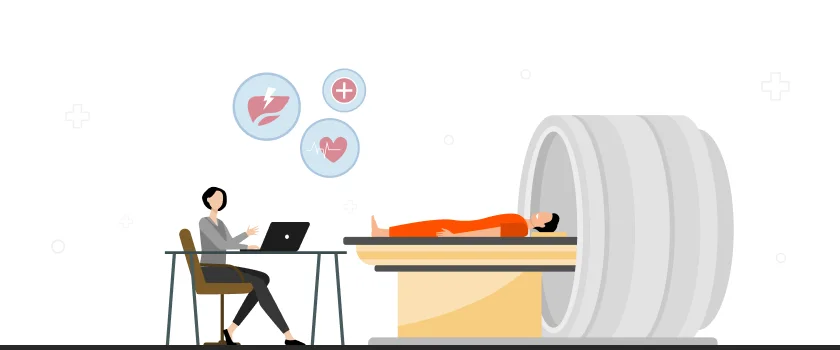
A trained medical interpreter is essential for maintaining communication in a healthcare setting. The right interpreter goes into the background of a conversation, allowing the two parties to converse easily with each other as if they were speaking the same language. To make this possible, an interpreter assumes the following roles during a communication session:
- A Channel of Communication
An interpreter is a channel of communication from one person to another, and this role as the “bridging channel” is the biggest role that an interpreter plays. The interpreter takes language from one party and interprets it in the target language. Likewise, a medical interpreter bridges the communication gap between a patient and a doctor or between two doctors who do not share the same language.
- A Clarifier
An interpreter often has to move to the role of a clarifier between the parties. He then has to confirm understanding and make a request. A medical interpreter is often required to explain the message from one party to another as it might involve a medical term that is difficult to understand by the other party. Often this happens when a doctor wants to describe an ailment to a patient. A medical interpreter clarifies and explains the terminology to the patient that would otherwise be difficult for him to understand.
- An Advocate
The role of an “advocate” is probably the most controversial role that a medical interpreter can take. When relaying a medical treatment, procedure, or medicine to a patient, an interpreter should never assume the role of an advocate. He should not communicate while having an underlying bias. The reason is that the presence of any bias by an interpreter can have potentially life-threatening consequences.
The Role of a Medical Translator
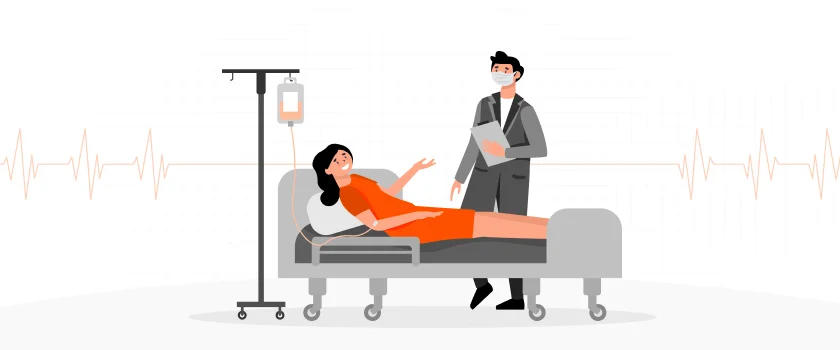
A medical translator is responsible for converting physician advice, diagnosis, written patient information, pharmacological instructions, and other related medical procedures from one language to another, often in a written form.
- A Channel of Communication
As opposed to a medical interpreter, a medical translator does not work through spoken word. He does not interpret from one language to another. A medical translator is only a channel to bridge the communication gap. He is not a clarifier or an advocate. A hospital’s translation is mostly concerned with files, notes, test results, and transcripts. A medical translator must translate all the information word for word, as closely as possible to the original text.
- A Collaborator
A medical translator has to play the role of a collaborator when undertaking the task of translation. The role of a medical collaborator is to convey the meanings and context of a medical text as closely as possible to the target party. For this, a medical translator needs to collaborate with doctors, medical experts, and even patients to convey the translation. This “collaborative” role also helps to ensure all the hard-to-understand information is communicated easily for comprehension.
- A Written Liaison
In the process of translating an academic paper or an article, a translator has to work closely with his client. The translator has to clarify aspects of a source text when prompted by a client. For example, the translation of a medical condition that is hard to understand has to be done in a way that is easy to comprehend by all medical stakeholders. Since these interpreters are not medical translators, they are not responsible for translating the use or instructions to operate the equipment.
Unlike a medical interpreter, a medical translator is required to convey the necessary information in writing. Since they are not medical interpreters, they are not responsible for assisting a patient in the physician’s office. Instead, they are a “written liaison: between a company and healthcare professional or a patient and healthcare professional.
- A Client Dealer
When working with a client or a company, a translator must closely communicate and collaborate with the other party to execute the task of translation effectively. In the case of a medical translation, a translator has to deal with a client and enquire about the query he has with the other party. For example, a medical translator communicates the need for a medical diagnosis to a healthcare professional and hence “deals” with the two parties.
2. The Difference in Skill Sets
There are profound differences between the skill sets of a medical interpreter and a medical translator. However, both of these people need to handle their tasks carefully to ensure patient safety and accurate medical collaboration.
The Skill Set of an Interpreter:
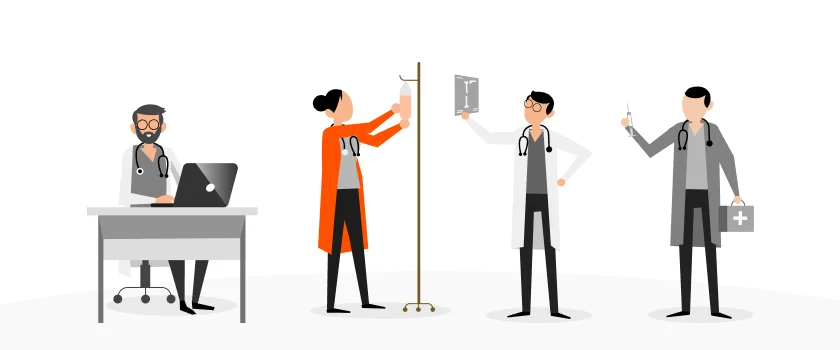
- Fluency in understanding languages
An interpreter should be skilled enough to read and comprehend instructions. However, writing and typing skills are not important for an interpreter. An interpreter must be fluent in the spoken languages they are supposed to interpret in, including every accent or dialect of those languages.
- Fluency in pronunciation
An interpreter is required to “speak” the translation of the dialogue between the parties. He must have excellent fluency in pronouncing the words and sounds as well as phenomes. A medical language uses many complex names, which are often hard to pronounce, such as the names of medicines or diagnoses. A medical interpreter must be able to comprehend and understand what is being communicated. He should have a clear grasp of pronunciation to be able to communicate the message to the other party so that no confusion or misunderstandings arise.
- Fluency in speech conversion
An interpreter is required to work in real time. This means he needs to convert speech from one language to another without breaking the flow of the conversation. The time constraint between an interpreter and a translator dialogue makes the job of a medical interpreter a very difficult one. This is so because he cannot refer to a medical dictionary or an encyclopedia when he gets confused about a particular word. Instead, an interpreter must possess a huge lexicon of vocabulary in each language. He should also have an adept mind to recall the meanings of words that he commonly encounters on the job.
The Skill Set of a Translator:

- Fluency in Writing Skills
A translator must be strongly familiar with the written form of each language he translates. For example, languages do not use the same Latin alphabet found in the English script. The Arabic language uses cursive, joined letters which a translator needs to write from right to left instead of from left to right. There are also many nuances when a translator is required to join those letters, as some of the letters have multiple forms.
- Fluency in Translating
Translation involves adaptation and conversion from one language to another. This is best handled by a professional translator who knows how to translate accurately. A medical translator must be aware of all the medical terms and common names of diseases and medicines. In this way, we will be able to translate a medical diagnosis or file without any worry. Every language script is different and each has its idiosyncrasies. The task of the translation may become a difficult one. A skilled translator, however, would be experienced enough to handle translation, as he would also be skilled in writing the languages he is required to translate into.
3. The Difference in Educational Requirements
The Requirements for a Medical Translator
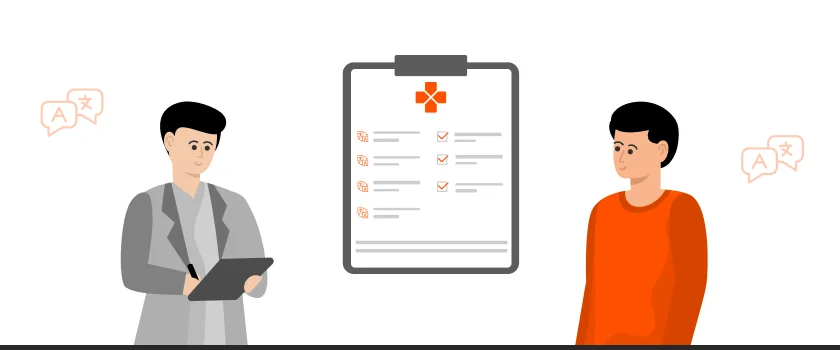
- High school diploma in medical diagnosis and nomenclature.
- Proficiency in language pair. It is ideal for a medical translator to be proficient in English as a basic language and any other native version of a local language.
- Fluency in more than one language is a requirement that a medical translator must fulfill.
- To succeed or get hired in the field of a translator, a certification from a medical board or National Commission of Certifying Agencies (NCCA) accredited program is necessary.
- Certifications in the medical field and medical terminology ensure that the translator has an in-depth knowledge of medical terminology and an understanding of the usage of medical terms.
- The National Board of Certification of Medical Interpreters (NBCMI) offers one accredited certification that a medical translator should look into.
- Skills in machine translation and word-for-word translation are a must for a translator. He might be required to translate complex medical documents and prescriptions. Therefore, he should be skilled enough to understand and translate them effectively.
- Excellent command of working languages.
- Understanding and in-depth knowledge of cultural differences between parties.
- Knowledge of anatomy and physiology as well as medical terminology.
- Understanding and knowledge of health care concepts as well as ethical issues related to the medical field.
The Requirements for a Medical Interpreter

- The medical interpreter has to communicate medical-related terms between the parties. A high school diploma in medical diagnosis and treatment is a must for him.
- A medical interpreter must be proficient in English and any other native version of a local regional language. The more languages a medical interpreter knows the more skilled he is.
- Skills in spoken language are a must for a medical interpreter. They are required to communicate between parties about medical diagnoses or treatments. Owing to this, a medical translator must have a strong command of spoken English and other languages of the region.
- Certifications from a medical board are a plus when an interpreter needs to establish communication between two parties. Preferably, a certification from a National Commission for Certifying Agencies (NCCA) accredited program is a must.
- An in-depth knowledge of medical terminology is required for a medical interpreter. Also, an absolute understanding of its usage as this knowledge and skill is the key to becoming an interpreter who is in demand.
- The National Board of Certification of Medical Interpreters (NBCMI) offers accredited certification courses that a medical interpreter should enroll in.
- Strong interpersonal skills such as clear speech or sign language.
- The ability to work bi-directionally, actively conversing in both languages.
- String interpersonal skills and an understanding of dialects in regional languages.
- The ability to think on their feet and stay calm and patient as required by medical dialogue between parties.
- A command over listening and memory skills.
- An ability to understand and interpret non-verbal cues.
Key Takeaway
The field of medical sciences is complex and extremely sensitive. It requires utmost care and precision as far as translation and interpretation are concerned. A medical translator and interpreter both are tasked with the sensitive job of establishing communication between patients, healthcare workers, and medical organizations. That’s why they should leave no room for incorrect translation or misinterpretation. Failure to properly communicate could result in catastrophic outcomes for patients and all stakeholders.

Finland is a beautiful country in Northern Europe. It is famous for its woodlands that make it the most densely
Read more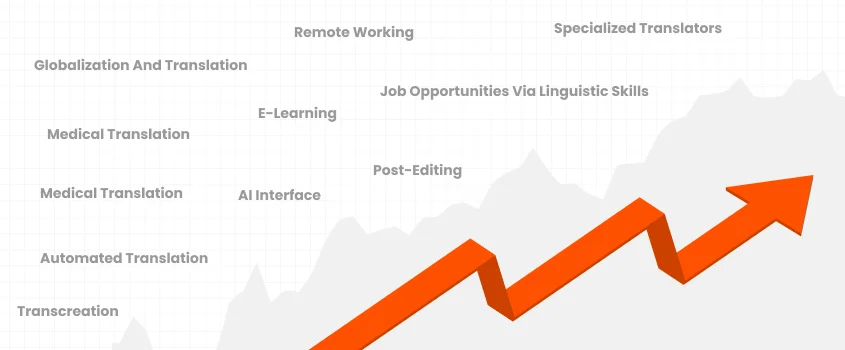
If you are an avid internet user (which you most probably are, you must be aware of the popular myth
Read more
To get success in every aspect of life, communication is very important. Do you want to impress people with your
Read more
Africa is the second largest and second most populous continent. As recent statistics suggest, 1,486,275,887 is the current population of
Read more
dxf: DXF is a CAD data file format developed by Autodesk for CAD data exchange between AutoCAD and other software. docx:
Read more
Mars Translation can help you extract the texts in a DXF file and convert them into a XML file so
Read more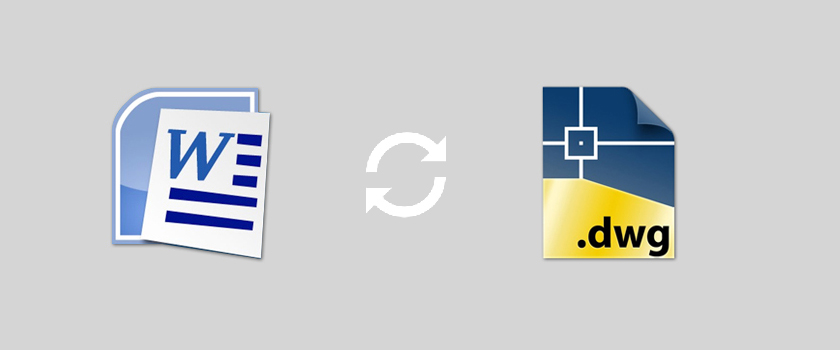
Mars Translation can help you extract the texts in a DWG file and convert them into a Word file so
Read more
No state on the western side of the globe can compare the strategic geographic location, diverse multilingual workforce, and attention
Read more
San Diego is California's second-largest city, and it has a population of 1.3 million from which three million residents are
Read more